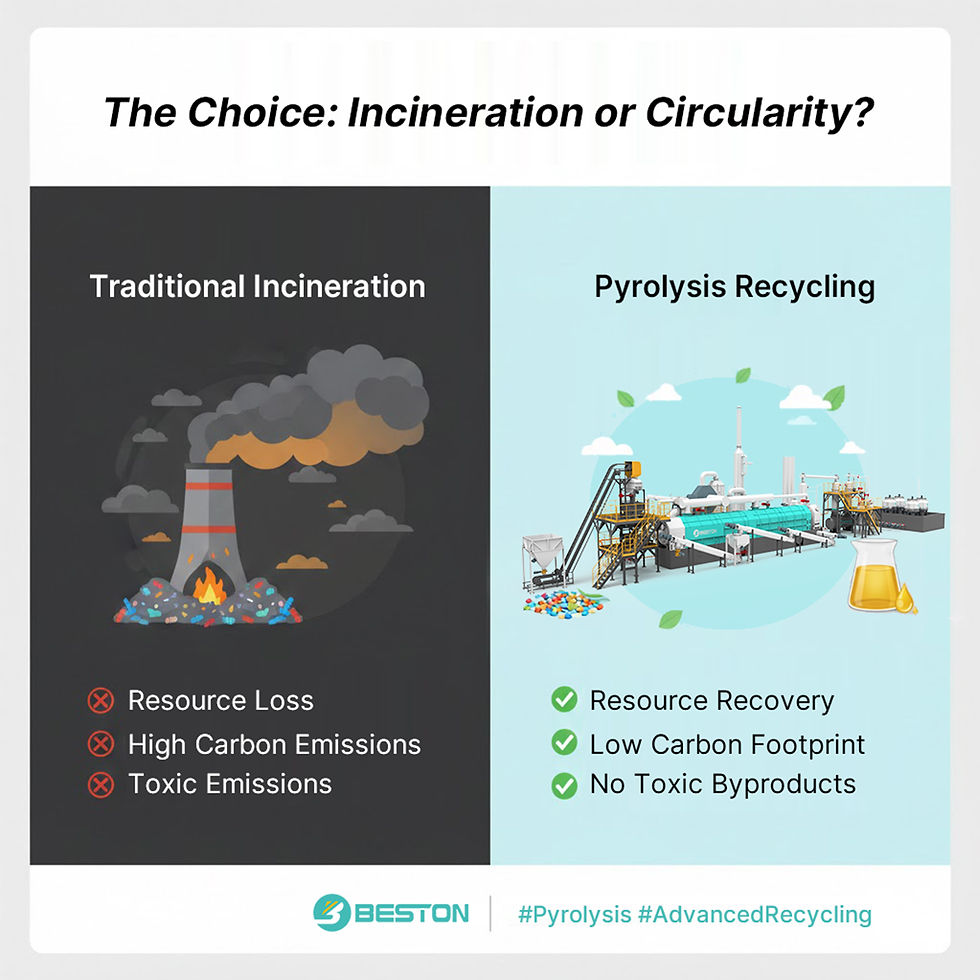Charcoal Making Machine in Sustainable Rural Development
- lee784287
- 2025年8月28日
- 讀畢需時 2 分鐘
Rural communities face the pressing challenge of balancing economic growth with ecological stewardship. Limited access to modern energy sources and a heavy reliance on biomass often perpetuate cycles of deforestation and environmental degradation. The introduction of a charcoal making machine creates a pivotal intervention. By transforming agricultural residues, forestry byproducts, and organic waste into high-grade charcoal, such technology integrates sustainable practices with income generation opportunities.
Resource Efficiency and Waste Valorization
A charcoal making machine maximizes the utilization of biomass resources that are often discarded. Rice husks, coconut shells, palm kernels, and wood scraps can be diverted from open burning or landfilling and converted into a durable carbon-rich material. The process not only reduces the uncontrolled release of greenhouse gases but also stabilizes organic matter in the form of biochar. Through the adoption of a pyrolysis machine for biochar, communities can mitigate environmental pollution while creating a marketable energy commodity.

Energy Security in Remote Settlements
Energy poverty remains a barrier to rural development. Many settlements rely on firewood, which accelerates deforestation and contributes to health risks from indoor smoke. A charcoal making machine establishes a renewable source of clean-burning fuel. The resulting product has higher calorific value, greater uniformity, and less smoke emission compared to raw biomass. This improvement enhances household energy security, reduces pressure on forest resources, and provides a scalable pathway toward decentralized energy production.
Economic Multipliers and Livelihood Generation
The deployment of a charcoal making machine stimulates rural economies through multiple revenue streams. Households and cooperatives can sell biochar as fuel, soil amendment, or filtration medium. Farmers adopting the pyrolysis machine for biochar create added value from agricultural waste, turning a disposal problem into a cash-flow opportunity. Employment expands across feedstock collection, processing, packaging, and distribution networks, creating an ecosystem of rural entrepreneurship. These activities help retain value locally and prevent the outflow of resources to external markets.
Soil Rehabilitation and Agricultural Productivity
Beyond energy applications, biochar derived from a charcoal making machine contributes to agronomic advancement. When integrated into soils, biochar improves moisture retention, aeration, and microbial activity. It enhances the cation exchange capacity, allowing crops to absorb nutrients more efficiently. This transformation strengthens food security in rural regions where soils are often degraded and agricultural yields remain low. By integrating a pyrolysis machine for biochar into farming systems, communities unlock a circular model in which waste fuels productivity rather than depletion.
Long-Term Sustainability and Climate Contribution
Sustainable rural development requires resilience against environmental and economic volatility. The adoption of a charcoal making machine aligns with climate objectives by sequestering carbon and reducing reliance on non-renewable fuels. The machine's ability to operate at varying scales—from household units to community plants—ensures flexibility in application. This adaptability allows rural settlements to evolve toward carbon-neutral practices while safeguarding their ecological base. As demand for renewable energy and climate-conscious technologies grows, communities equipped with this machinery are positioned at the forefront of sustainable development.


留言